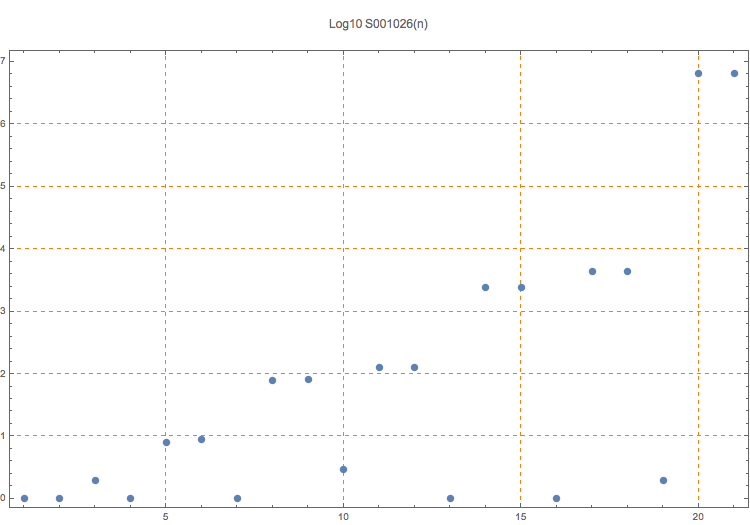Triples 0 < a <= b < c with a + b = c, gcd(a,b) = 1, and log(c)/log(rad(a*b*c)) a new maximum.
1, 1, 2, 1, 8, 9, 1, 80, 81, 3, 125, 128, 1, 2400, 2401, 1, 4374, 4375, 2, 6436341, 6436343
1
Note that a = b is possible only when a = b = 1. The rad(n) function, where n = p1^e1 p2^e2 … pk^ek is the prime factorization of n, is the product of the primes p1*p2*…*pk. The value of log(c)/log(rad(a*b*c)) for these triples are approximately 1.0, 1.22629, 1.29203, 1.42657, 1.45567, 1.56789, and 1.62991.
T. D. Noe, Plot of 7 triples
Abderrahmane Nitaj, The ABC Conjecture Home Page
Wikipedia, Radical of an integer
(Mma) rad[num_] := Module[{f = FactorInteger[num]}, Times @@ Transpose[f][[1]]]; nn = 10000; mx = 0; t = {}; Do[b = c - a; If[GCD[a, b] == 1, r = rad[a*b*c]; alpha = N[Log[c]/Log[r]]]; If[alpha > mx, mx = alpha; AppendTo[t, {a, b, c}]; Print[{a, b, c, alpha}]], {c, 2, nn}, {a, c/2}]; t
Cf. A120498.
nonn,tabl,hard
T. D. Noe, May 11 2017
